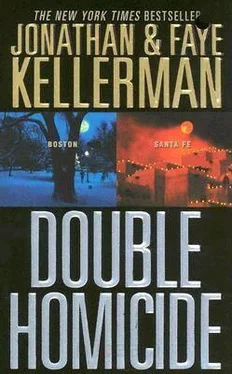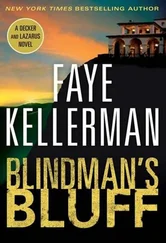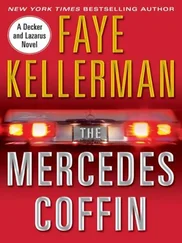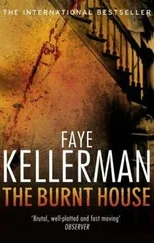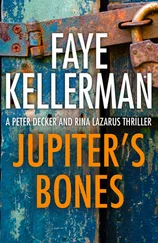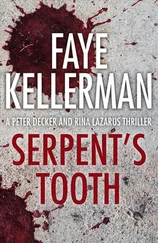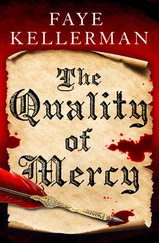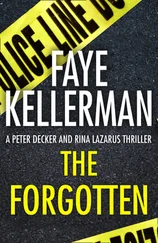Katz scratched his head, too. The mannerism was catching. He said, “Let’s call Doc and see if he’s done the autopsy.”
Ruiz had finished the postmortem, but he had nothing new to tell them.
“Everything fits with my initial hypothesis. One massive, crushing blow to the skull-you can see where the bone got driven right into the brain-did all sorts of damage.”
“You’re still thinking about the perp being a tall bad guy?” said Two Moons.
“Or a short bad guy on stilts.”
“What about the tox screen?”
“The fancy stuff hasn’t come in yet, but I can tell you there was no dope or alcohol in Olafson’s system.”
“Clean living,” said Katz.
“At least recently,” said Dr. Ruiz. “There was some old cirrhotic scarring of the liver, indicating serious alcohol usage in the past.”
“Reformed drunk.”
“Or just a guy who’d decided to moderate.”
“So much for good intentions,” said Two Moons.
Darrel called his wife. Katz phoned the gallery. Summer Riley answered.
“Have you learned anything?” she said.
“Not yet, Ms. Riley. Any art missing?”
“I just started going through the inventory. Nothing so far, but there’s tons of unframed canvases back here.”
“Did Mr. Olafson ever talk about having a drinking problem in the past?”
“Sure,” said Summer. “He was open about it. Like he was about everything.”
“What did he tell you?”
“We would go out to lunch and I’d order a glass of wine. Larry would look at it kind of… longingly, know what I mean? But he ordered club soda. He told me he had done some serious drinking when he was younger, that it was one of the reasons his marriage broke up. He said he’d been lucky to get help.”
“Where?”
“Some sort of spiritual counselor.”
“Back in New York?”
“Exactly,” she said. “A long time ago.”
“Do you know the name of Mr. Olafson’s ex-wife?”
“Chantal. She’s Chantal Groobman now. As in Robert Groobman.” Silence over the line. “Groobman and Associates? Investment banking? He’s huge !”
Such enthusiasm, proving what Katz always suspected. That size really does matter.
A woman with an English accent answered at the Groobman apartment on Park Avenue. From the address, Katz knew exactly where it was: between 73rd and 74th. He visualized ten rooms with high ceilings, a snooty uniformed maid inside and a snooty uniformed doorman out front. For a moment, he experienced a pang of longing.
“Mrs. Groobman?”
“This is Alicia Small, her personal assistant.”
Katz introduced himself, attempting to make some New York small talk. It was the wrong move. Alicia Small was in no mood for chumminess and she turned frosty. “Mrs. Groobman is indisposed.”
“Any idea when she’ll be unindisposed?”
“None. I’ll forward your message.”
“Forward?” said Katz. “Does that mean she’s out of the city?”
Pause. “She’s in the city. Leave your number and I’ll inform her-”
“Are you aware that her ex-husband has been murdered?”
“I’m quite aware,” said Alicia Small.
“How long have you been working for ”Madame‘?“
“Three years. If that’s all, Mr. Katz-”
“It’s Detective Katz.”
“Excuse. Detective Katz. Now, if we’re through-”
“Actually we’re not. I need the names of Mr. Olafson’s children.”
“I’m not at liberty to discuss family.”
“It’s public knowledge.” Katz didn’t bother to keep the annoyance out of his voice. “Why make my life difficult?”
“How do I know you’re who you say you are?”
“Here’s my number at the Santa Fe Police Department. Call and check me out, but don’t take too long.”
It was an offer most people refused. Alicia Small said, “Recite those numbers again, please.”
The second time around, she was just as cool but resigned. “What would you like to know?”
“The names of my victim’s children.”
“Tristan and Sebastian Olafson.”
“How old are they?”
“Tristan’s twenty and Sebastian’s twenty-three.”
“And where might they be found?”
“Mr. Katz, I’m just not comfortable-”
“Detective-”
“Yes, yes, Detective Katz.”
She was peeved, but so was he. “Ms. Small, your comfort isn’t high priority. I need to talk to the boys.”
A sigh floated through the receiver. “Tristan’s at Brown University and Sebastian’s traveling in Europe.”
“Where in Europe?”
“Italy.”
“Where in Italy?”
“Venice.”
“Where in Venice?”
“The last time I heard he was staying at the Danieli Hotel.”
“Vacation?”
“He’s studying at the Peggy Guggenheim.”
“Art historian?”
“He paints,” said Alicia Small. “Good evening, Mister Katz.”
They split up the Olafson boys. Katz located Tristan in his dorm room at Brown. The boy had the deep voice of a man and had learned about his father’s death from his mother.
“Do you have any clues?” he asked Katz. “About who did it?”
“Not yet. Do you?”
“Could be anyone. He wasn’t well liked.”
“Why’s that?”
“He wasn’t a nice person.” A cynical laugh. “If you did an ounce of investigating, you’d know that.”
Katz ignored the barb and tried to get more out of him, but the boy had nothing more to say. He seemed unmoved by losing his parent. When Katz hung up, he realized Tristan had never referred to Olafson as anything other than “he.”
Two Moons told Katz that he had located Sebastian Olafson. He’d been sleeping in his room at the Danieli.
“Kid was pissed. Not just because I woke him up. More like I was bugging him, asking questions about Olafson. He said his dad was a nasty man.”
“Same from the other son.”
“Close-knit family.”
“Popular victim,” said Katz. “This is going to be a barrel of laughs.”
At seven p.m., they were ready to pack it in. As they were putting on their jackets, Katz’s desk phone rang. Chantal Groobman was returning his call and leaving a message. Astonished, Katz raced back to his desk. He and Darrel picked up their extensions simultaneously.
“This is Detective Steve Katz. Thank you, ma’am, for getting back so promptly.”
“How can I help you, Detective Katz?”
She was a pleasant-sounding woman, with a light, friendly voice. After being snobbed out by her personal assistant, he’d expected to be stonewalled.
“Whatever you can tell us about your ex-husband would be helpful, ma’am.”
“Poor Larry,” she said. “He could be well intentioned, but he had a knack for making people angry. I do believe part of that was attention-seeking behavior. The rest was strategy. Back when Larry began his business, he learned that art makes people, even wealthy people, insecure. He became adept at subtle intimidation. He found that a certain degree of calculated obnoxiousness could help propel his career.”
“Art buyers like to be mistreated?” said Katz.
“Some do, some don’t. The key is knowing who to abuse and who to pander to. Larry was good at it. But sometimes even the finest dancer missteps. Do you have any suspects?”
“Not yet.”
“Poor Larry,” she repeated. “He really thought he was immortal.”
“If you don’t mind my asking, ma’am, was Mr. Olafson’s abrasive behavior the reason you divorced him?”
“I’m sure that was part of it,” said Chantal Groobman. “But the main reason was Larry and I both discovered that he was confused.”
“About?”
“Take a wild guess, Detective Katz.”
Читать дальше
